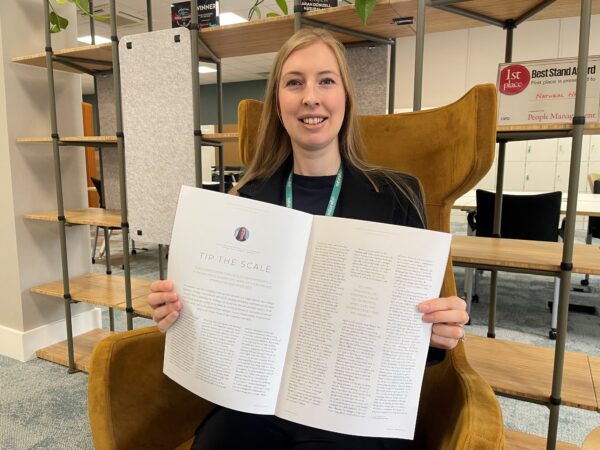Cash might be king in a small business, but customer experience can be crucial to scaling. In this post, we will focus on strategies for building customer loyalty. Small companies can foster long-term customer relationships by prioritising customer satisfaction and creating memorable experiences, leading to increased growth and profitability.
Understanding Customer Experience
Customer experience encompasses all interactions and touchpoints with your business, from the initial contact to post-purchase support. I really want to stress “all interactions” again. From running a technology business, I’ve made this mistake; it’s easy to focus too heavily on customer satisfaction with your software support team but forget about what happens when customers are in touch with your Finance team for a copy of a misplaced invoice!
Customer experience is the overall perception and sentiment a customer develops based on their encounters with your brand. Ensuring a positive customer experience is essential to cultivate satisfaction and foster lasting customer loyalty. It influences their likelihood to return and encourages them to recommend your business to others. It also means you’re more likely to receive positive reviews on platforms like Trustpilot or in response to your social media posts.
The Fundamentals of Building Customer Loyalty
To build customer loyalty, you’ll need to establish a customer-centric culture in your team, prioritising customer needs and expectations at every business level. By understanding and anticipating what customers want, you can tailor your products, services, and interactions to meet and exceed those expectations. A customer-centric approach fosters a sense of trust and loyalty, as customers feel valued and appreciated.
Creating Memorable Experiences
Personalising interactions with customers is a powerful way to enhance their experience. As a small business, you have the advantage of being able to provide a more intimate and individualised service than a large corporation. By remembering customer preferences, offering personalised recommendations, and going the extra mile to accommodate their needs, you can create memorable experiences that leave a lasting impression.
Consistency and reliability are equally important in delivering exceptional customer experiences. Customers value predictability and expect a certain level of service each time they engage with your business.
Communication and Engagement
Effective communication is key to building strong customer relationships. With so many channels, such as email, phone, and social media, it can feel overwhelming to provide regular updates, personalised promotions, and timely responses to inquiries. These demonstrate that your business values its customers and is committed to their satisfaction. However, I recommend asking for customer feedback on their preferred channel of communication and looking at how you can deliver a more personalised approach.
Engaging with customers through surveys is another essential aspect of communication. By actively seeking customer opinions and suggestions, you can gain valuable insights into areas for improvement. Responding to positive and negative feedback shows that your business listens to its customers and is willing to make changes based on their input.
Going Above and Beyond: Delighting Your Customers
Small businesses can implement surprise and delight strategies to truly stand out and foster loyalty. These unexpected gestures exceed customer expectations and create a memorable experience. You could send personalised thank-you notes, offer complimentary services or upgrades, or provide exclusive access to special events or promotions. By going above and beyond, you can create a sense of delight and appreciation that strengthens customer loyalty.
Leveraging Technology for Enhanced Customer Experience
Technology can be a powerful tool for small businesses to enhance customer experience. Implementing customer relationship management (CRM) systems allows businesses to centralise customer data, track interactions, and gain insights into customer behavior. This information can personalise communications, anticipate customer needs, and provide tailored recommendations.
Automation tools can also streamline processes and enhance customer interactions. For example, chatbots can provide instant support and answer frequently asked questions, while automated email campaigns can deliver personalised content and offers based on customer preferences. BUT (and yes, it’s a capitalised BUT to start a sentence but highlights this point), most of us have experienced the annoyance of the tech not answering our question. So, the ease of transitioning to human contact makes a huge difference in this experience!
Empowering Your Team
Building customer loyalty starts from within. Small businesses must empower their employees to deliver exceptional customer service. Here’s how: by providing comprehensive training on product knowledge, communication skills, and problem-solving techniques, you don’t have to create and deliver all of this yourself. Take a look at online learning to help with soft skills training. Encouraging a customer-centric mindset among team members fosters a culture where every interaction is an opportunity to create a positive experience.
Empowered employees feel valued and are more likely to go above and beyond for customers. By giving them the autonomy to make decisions and resolve issues independently, you can ensure a more efficient and satisfying customer experience.
Measuring Success: Key Metrics for Evaluating Customer Experience
Small businesses must measure and evaluate their efforts to continually improve customer experience. Identifying key performance indicators (KPIs) such as customer satisfaction scores, retention rates, and net promoter scores (NPS) provides quantifiable insights into the effectiveness of customer experience strategies.
Analysing solicited and unsolicited customer feedback is another valuable source of information. By actively listening to customer opinions and suggestions, small businesses can identify areas for improvement and make data-driven decisions to enhance the customer experience.
Conclusion
Building customer loyalty is a critical aspect of small businesses’ success. You can foster long-term relationships with your customers by prioritising customer experience and implementing strategies to create memorable interactions. From establishing a customer-centric culture to leveraging technology and empowering employees, numerous ways exist to enhance your customer experience.
By actively measuring and evaluating customer satisfaction, you can continuously improve and adapt to meet evolving customer needs. With a commitment to exceptional service and a focus on building loyalty, your businesses can thrive in today’s competitive landscape.





